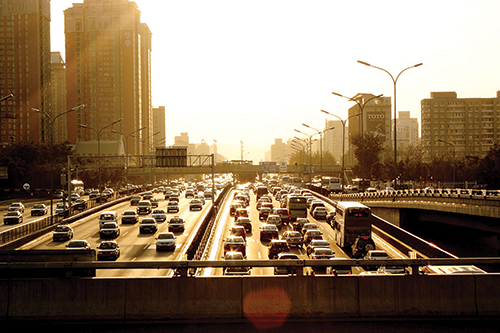When it comes down to it, I really don’t have a whole lot to complain about. Sure, there are rising tuition costs, weird weather, sometimes the show I want to go to is sold out—the list goes on. However, these complaints are small and relatively insignificant in the grand scheme of things (apart from the tuition costs, and I’m sure I’m not alone in that). However, one thing that I find to be a valid complaint is the rising cost of public transit.
Tough commutes

When it comes down to it, I really don’t have a whole lot to complain about. Sure, there are rising tuition costs, weird weather, sometimes the show I want to go to is sold out—the list goes on. However, these complaints are small and relatively insignificant in the grand scheme of things (apart from the tuition costs, and I’m sure I’m not alone in that). However, one thing that I find to be a valid complaint is the rising cost of public transit.
Last year, TriMet raised prices for commuting services, and also eliminated the Free Rail Zone on the MAX and Streetcar lines. The cost of a FlexPass skyrocketed as well, making bus commutes less affordable, especially for students and low-income families.
A New York University study stated that the 21st century is seeing the emergence of the “super-commuter.” The study showed that super-commuting is a growing trend within “major United States regions, with growth in eight of the 10 largest metropolitan areas.” While the Portland area was not listed as one of the growth-heavy areas, our city is still becoming a hotspot for long, arduous commutes.
A recent article in The Oregonian detailed the many tribulations of the “extreme commuter.” The article stated that, in Oregon alone, around 90,000 people “commute 60 minutes or more to and from work.” The most recent census also showed that the amount of Oregon and Northwest commuters stuck in “extreme commutes” is growing.
According to the terms of the article and commuting data, an “extreme commute” means, at minimum, that a commuter lives on one side of the river but works on the other, thus making the commute span the East and West sides, and can be as long as a commute between Portland and Vancouver.
This need for the extreme commute is because of the economic recession and the lack of work available in varying parts of the state. The census also coined the term “mega-commuters.” These are commuters who suffer “through at least 90 minutes and travel 50 miles getting to the office in the morning.” The national average for “mega-commuters” is 1 percent; according to census data, 0.7 percent of Portland’s commuters fall into that category.
The Oregonian reported that “74,000 Washington residents cross the border daily to get to workplaces in Oregon.” That’s a lot of people coming into Oregon just for work.
Because gas is still so ridiculously expensive, a majority of these workers use public transit or carpool to get to work. While it’s sometimes hard to believe, the Portland area has really good public transit. There are varying types of transportation available all over the area to help all types of commuters get to their destinations.
In February, Portland’s KGW News, in collaboration with the Associated Press, reported on a Texas A&M Transportation Institute study that researched delayed commuting and traffic congestion. Portland ranked number 17 on the list of bad commutes, so I guess it could be worse. The statistics showed that Portland-area commuters “wasted an average of 44 hours stuck in congested traffic” annually.
A solution to this commuting problem and wasted time would be to build a new bridge. That project is still in the planning stage and includes a new MAX line to help ease the stress of morning and evening commutes. The project is expensive and won’t even be started until at least 2014, but the investment of time and money could all be worthwhile once commutes become easier.
There’s no easy fix for the economy; fixing commute problems is a more realistic goal at the moment. With a new bridge, commuting between distant areas will be easier, but more can always be done. TriMet is already doing many things to make travel as quick as possible, but bus delays, et cetera, are always going to get in the way, no matter how far transit technology advances.
What needs to happen is an economic turnaround, but that’s something we can’t really do anything about right now. What we can do is be patient and hope for the best. It (meaning the economy, transit and so on) will get better someday. Hopefully that someday is sooner than we think.




